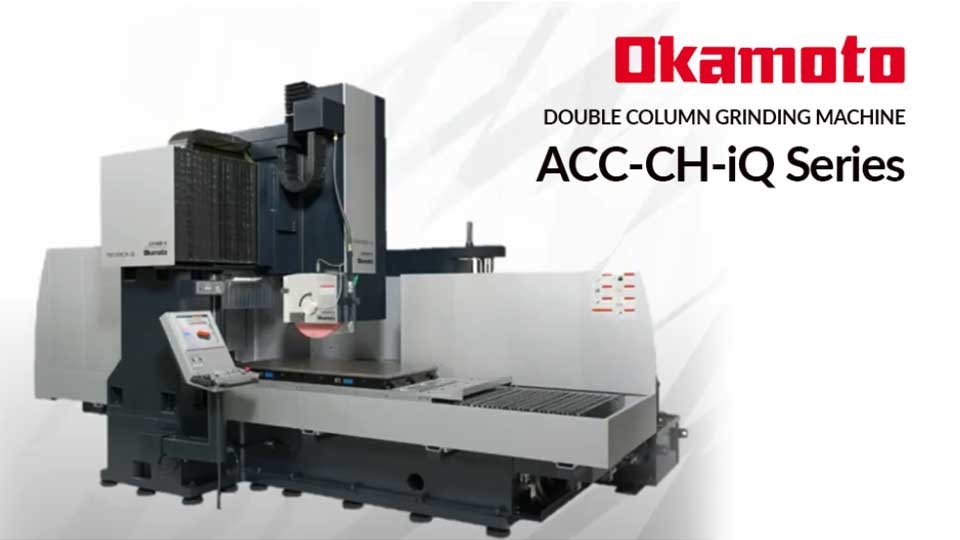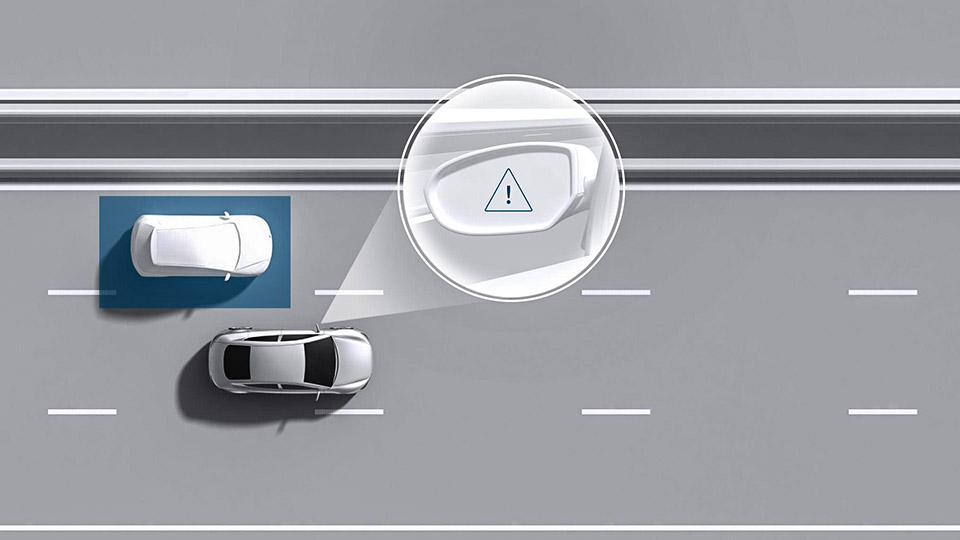
BOSCH presented Vision of accident-free mobility through Driver Assistance Systems
With more than 1.2 million people killed on the world’s roads each year and an estimated 120,000 fatalities in ASEAN alone, the United Nations General Assembly earnestly advocates for road safety, declaring 2011 to 2020 the “Decade of Action for Road Safety”.
In November 2017, Thailand officially became the country with the highest road fatality rate in the world, overtaking Libya from just one year before. Road accidents are more prevalent during festive season due to the increase in traffic, such as the Songkran festival.
In April 2018, Thailand’s Department of Disaster Prevention and Mitigation announced the death and accident statistics of the recent Songkran celebration, identifying a total of 418 deaths and more than 3,800 injuries during the seven-day observation.
Vastly popular with both local and foreign tourists, the Songkran Festival offers colourful celebrations of the Thai New Year, including merrymaking on the streets. Dubbed the “seven dangerous days” where Thais embark on long travels back to their hometowns, it is as popular for its road accidents as it is for its rich countrywide celebration.
Of all accidents registered throughout the Songkran festival in 2018, 40 percent are caused by driving under the influence of alcohol, while 26 percent are attributed to speeding. Being the world’s fifth largest producer of motorcycles, putting roughly 1.8 million new motorcycles on the road in 2017 alone, it comes as no surprise that almost 80 percent of these accidents in Thailand involved two-wheelers.
Safe roads, above all
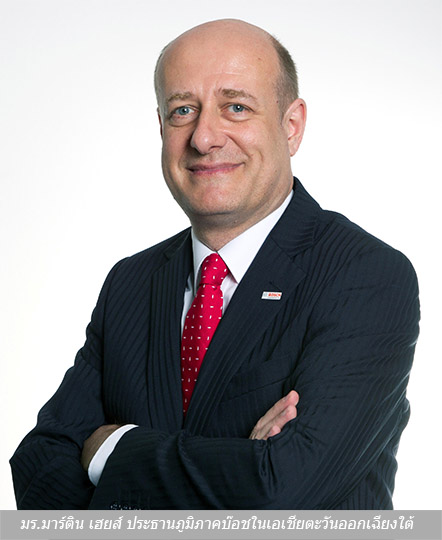
“More than significant economic losses, road traffic deaths and injuries cause insurmountable suffering and grief,” said Martin Hayes, president of Bosch in Southeast Asia. “Bosch continues to make substantial research and development investments, focusing on creating technologies that save lives. This includes inventing products and solutions that make roads and vehicles safer,” he added.
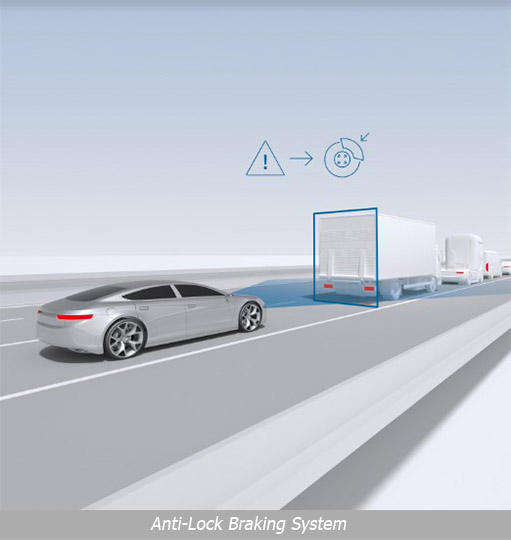
Among Bosch’s many pioneering innovations in the area of vehicle safety is the Anti-Lock Braking System (ABS). Introduced for passenger cars in 1978 and for two-wheelers in 1995, ABS prevents a vehicle’s wheels from locking up during an emergency braking situation. This technology was further enhanced with the development of the world’s first Electronic Stability Program (ESP®), which detects vehicle skidding movements, and actively counteracts them - considerably improving driving safety. To date, 74 per cent of all new vehicles worldwide are equipped with ESP®, and the system has prevented over 260,000) fatal accidents in Europe alone (as of 2014).
Accident-free mobility with driver assistance systems
Around 90 percent of accidents can be attributed to human error, for example, where risks are not detected or situations are not judged correctly, and the driver reacts too slowly or incorrectly. Using knowledge gained from various accident researches, Bosch has been developing driver assistance systems that include intelligent features like Automatic Emergency Braking, Lane Keeping Support, and Side View Assist that help drivers in confusing or critical traffic situations. These systems cover a wide range of everyday driving situations and are an important step in realising a future of accident-free and stress-free mobility.
High-traffic volumes increase the risk of rear-end collisions. In ASEAN, Bangkok ranks 12th in the world’s most congested roads, giving its motorists a predisposition to collisions. Automatic Emergency Braking (AEB), based on a network of sensors in the ESP®, helps to mitigate this situation. Continuously analysing traffic ahead and detecting critical proximity to a moving or stationary vehicle, AEB also initiates partial braking to reduce vehicle speed. If the driver fails to respond, AEB will apply full braking to avoid rear-end collision. In cases where collision is unavoidable, the intervention can at least minimize impact to the vehicles and injury to the driver and passenger.
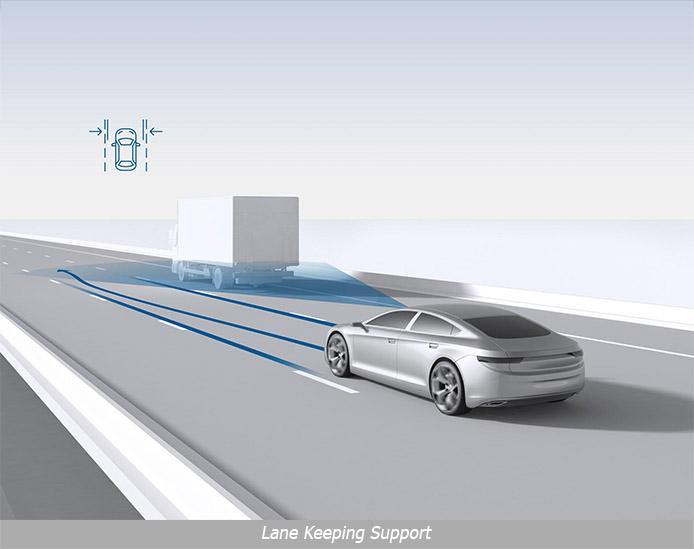
The Lane Keeping Support (LKS) help drivers to keep the vehicle on course. Using a video camera to identify lane markings in front of the vehicle, LKS is able to identify up to four lanes even in poor visibility situations, swiftly counter-steering to keep the vehicle in the lane. The driver is able to override the counter-steering when turn signals are activated – an intelligible sign that the driver is now in control.
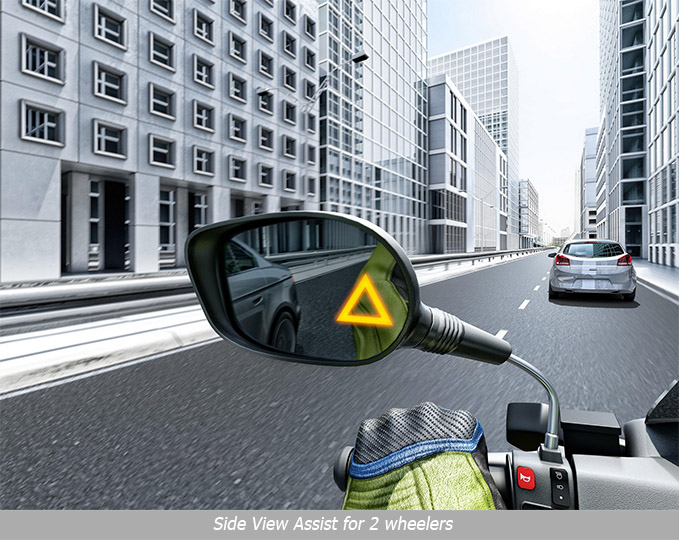
Studies suggest that field of vision is widest when stationary. At speed, the driver’s vision focuses automatically further ahead, significantly reducing vision in all directions, including periphery. This may affect the driver’s ability to assess his outside environment when performing actions such as changing lanes. The Side View Assist (SVA) feature – commonly known as blind spot technology – effectively identifies the driver’s blind spots and immediately displays warning signals on the side view mirror. In two-wheelers, this warning appears as an optical signal close to the mirror. Intelligent sensors are also able to categorize objects detected to avoid false alarms. Blind spot technology is part of the ASEAN New Car Assessment Program (NCAP) 2017-2020 protocol under the Safety Assist category – one of the requirements in obtaining points to achieve a star rating.
Road safety is everyone’s responsibility
A 2018 report published by the World Health Organization states that road traffic crashes cost countries three percent of their gross domestic product (GDP). The report also states that road traffic crashes will become the seventh leading cause of death by 2030, if no sustained actions are realised.
“Bosch believes that only through collective action will we see change. We call for a more active discussion and collaboration between governments, the scientific community, NGOs, the automotive industry, and the general public to seize the advantage of today’s technologies to make roads safer for everyone. We all hold a shared responsibility in ensuring an accident-free ASEAN and Bosch zealously supports this vision,” concluded Hayes.



